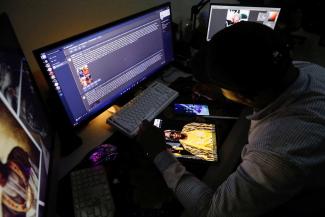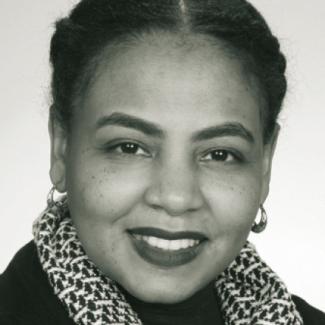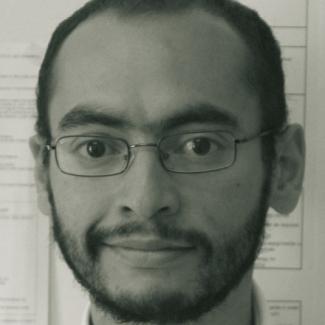Artificial Intelligence
Handling AI, but with care
 picture-alliance/REUTERS/Temilade Adelaja
A Nigerian artist creates hyper-realistic pictures using artificial intelligence.
picture-alliance/REUTERS/Temilade Adelaja
A Nigerian artist creates hyper-realistic pictures using artificial intelligence.
For a start, we should avoid thinking of AI as either a kind of golden calf or a demonic entity to be despised and feared. The reality is that AI is a specific type of technology. It shouldn’t come as a surprise that technologies have certain impacts. The development landscape has faced technological influences before and will continue to do so.
The outcomes of technological advances, such as AI, depend on whether their benefits do not lead to exploitation. Governmental and non-governmental institutions must quickly learn about the potentially harmful effects of such technologies and promote dynamics in which technology advances the development of society as a whole.
Equitable development enabled by technology depends on institutions effectively promoting its role in society. The crucial question is whose interests these institutions serve. Not least, we need an examination of our existing institutional capacities and deficits.
In Africa, technology such as AI is being hailed as the path to sustainable development. However, this only represents the best possible scenario for the continent. Development tends to lead to different outcomes depending on various factors. For this reason, it is important to ask ourselves what we really know about AI in Africa.
It is essential to recognise that AI cannot have the same impact and consequences in Africa as in other regions. Africa faces challenges such as widespread illiteracy and limited internet access. It is therefore especially important to think about ways in which disadvantaged people can benefit from technological advantages.
Mining data
Development will depend on how technology ownership, regulation and benefit sharing affect livelihoods across the continent. African countries need laws on data ownership and data protection. This is the only way that states can protect their citizens from a new form of exploitative mining, which will be all about their data instead of mineral resources.
AI certainly has the potential to reduce inequality by improving agriculture, financial inclusion, access to education, healthcare, job creation, language translation and data analysis. However, this will only be possible if it is implemented according to ethical guidelines tailored to Africa. The examples set by the Rwandan government and UNESCO here are noteworthy.
One should not expect progress in science and technology, including AI, to lead to achieving goals on its own. The availability of vaccines during the pandemic, for example, has shown how technology ownership, patents and intellectual property rights affect a country’s ability to benefit from scientific achievements. The lack of vaccines and the inability of many Africans to obtain them are a sobering reminder that sovereignty over technological and scientific accomplishments is, in practice, only possible for those with power and resources. Such inequalities may mean that the right of African governments to champion their vision of development with the help of AI depends on the willingness of companies and richer states to allow such visions to be realised.
We should also not expect technology to do the work that governments and societies should do. Technology remains a tool. Communities and the state must know what model of society they aspire to and what role technologies such as AI should play in this. Only then can technology help to identify sources of poverty, reduce inequality and help us to overcome barriers in income, education, healthcare and infrastructure. But for this to happen, societies not only need to know what they want to achieve with AI, they also need capable governments who are able to understand the benefits and blind spots of such technologies.
Azza Mustafa Babikir Ahmed is a research fellow on Sustainable Development and the African 2063 agenda, hosted by the Institute for Humanities in Africa (HUMA) of the University of Cape Town.
azza.ahmed@uct.ac.za
Fabio Andrés Díaz Pabón is a research fellow on Sustainable Development and the African 2063 agenda, hosted by the African Centre of Excellence for Inequality Research (ACEIR) of the University of Cape Town.
fabioandres.diazpabon@uct.ac.za



